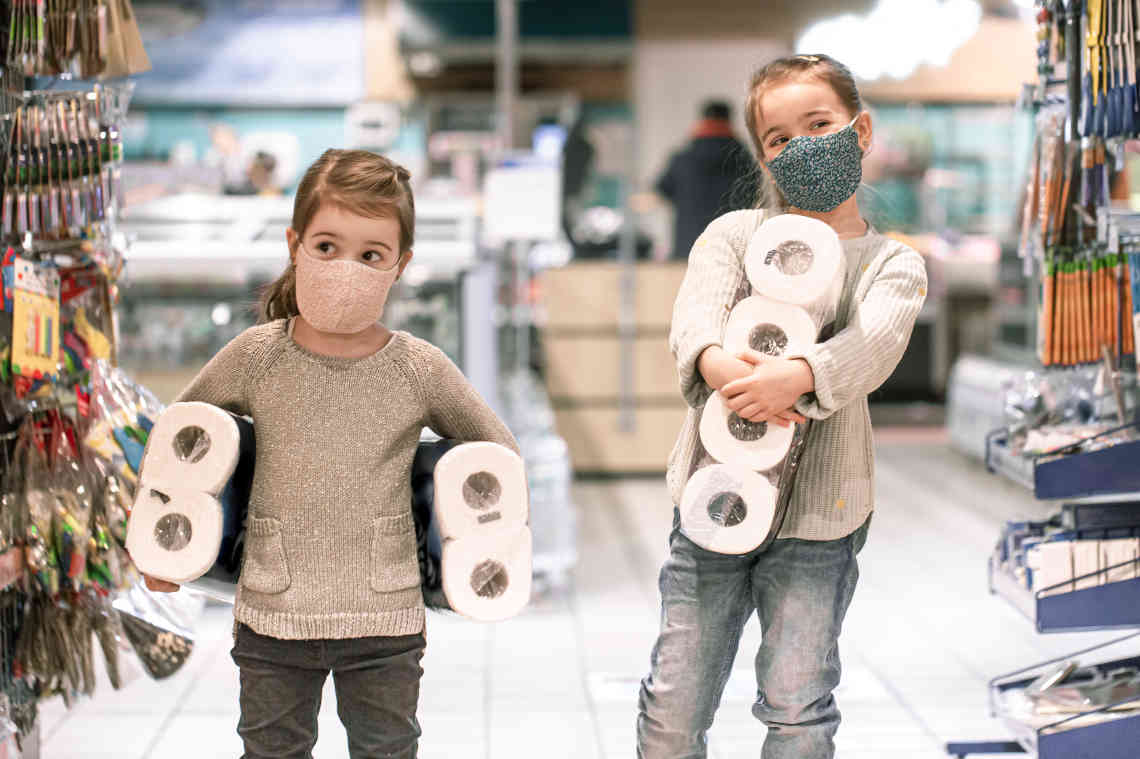Consumer Psychology and COVID-19

We educate, socialize, and exercise in new and different ways, thanks to COVID-19. The novel coronavirus seems to have altered every aspect of our lives. One of the most common disruptions has been the impact on our shopping and buying habits. Social distancing, shortages, and ever-changing demands have changed the way we shop. We’re buying everyday products, food, and everything else in new and different ways.
Psychological Factors
Many psychological factors affect our buying decisions during the pandemic. The lockdown has forced more family interaction, but there is not much social cohesion. Communities are experiencing social disruption as cultural norms change. Loneliness may affect the decisions of those who live outside of a family unit. Some families are going through periods of bereavement as they bury members stricken by the disease. The environment is another factor that marketers need to take into consideration. So are social status and social integration.
Coronavirus Psychological Behaviors
Hoarding
People assign value to less available items, like toilet paper. Soon after the announcement of the pandemic, we saw Scarcity vs. Abundance. People engaged in overbuying behaviors. Hoarding is a natural adaptive behavior. It kicks in any time there is an irregular supply of resources. It is in our brains’ programming to stock up when the news induces a panic that stores are running out of food.
Stockouts
In major cities, COVID-19 is limiting pastimes. City officials are discouraging the use of buses and subways. So, hundreds of thousands of Americans are now buying bicycles. In the early days of the pandemic, it was also hard to find rice, pasta, wipes, canned tuna, and hand sanitizer. Some stores placed limitations on how many items consumers could buy.
Trauma
COVID-19 was a sudden, unexpected, overwhelming, intense emotional blow. It resulted in welfare lines off 5thAvenue, and social, economic, and health trauma. Many people have reported feelings of betrayal, powerlessness, and stigmatization. It has activated the fight or flight response in people. They feel it as the TV networks announce each new threat. The pandemic has shown that we must create safe environments. These environments help counteract the long-term effects of chronic stress.
Physiological Stress
COVID-19 is also manifesting itself in anxiety and panic disorders. It is increasing people’s cortisol and causing sleep deprivation. Lack of exercise is causing endorphin levels to plummet. Thus, people have no protection from stress. They are consuming more canned goods and fewer fresh vegetables. Therefore, declining nutrition and critical vitamins may affect their mood. You can take back control by taking care of your emotional health. Make time to unwind and connect with others.
Theory of Learned Helplessness
When none of your actions work, no matter what you do, you may decide to do nothing. Learned helplessness is a theory for depression. It states that when nothing works, a person stops trying. That’s why we see the desperation in hotspots like Florida and California. Some people may choose not to leave infected environments. So, they stay, even though it makes rational sense to go. How can one fix learned helplessness? Only by regaining mastery and empowering oneself.
Abnormal Psychology
Many people feel safe at home during the pandemic. Yet, they are reporting loneliness, high levels of fear, anger, and boredom. The lack of authority is causing hopelessness in many. People are displaying antisocial behavior, and gang activity is rising in New York. Despite these worrying developments, it’s essential to stay in perspective. We need to be compassionate to ourselves when things don’t go as planned.
No More Conspicuous Consumption
Luxury goods were the first customer segment to experience cutbacks due to the pandemic. It might be the last to recover since this segment is the most discretionary of all consumer purchases. The shutdown in the lifestyles of affluent consumers has given them downtime. They can now reassess their priorities. It’s because the market for luxury items thrives on the psychology of wealthy buyers. If they feel good about themselves, they splurge. If they don’t, they won’t.
COVID-19 has breached the consumer’s mind and psychology, which may upset his or her ways of buying. Brands have to use new ways of communicating. It’s the best way to reduce the psychological impact on consumers. Meanwhile, technology companies are coming up with new offerings. It may open new avenues to brands, enabling them to influence consumer behavior.
Retailers need to understand the psychology of shoppers. They can then use those insights to influence their buying behavior. But evaluating the long-term potential of consumers’ behavior is difficult. Still, retailers have the power to help shape their consumers’ buying decisions. They can also use the opportunity to provide a meaningful online presence. They can be there for customers who cannot enter their stores.

